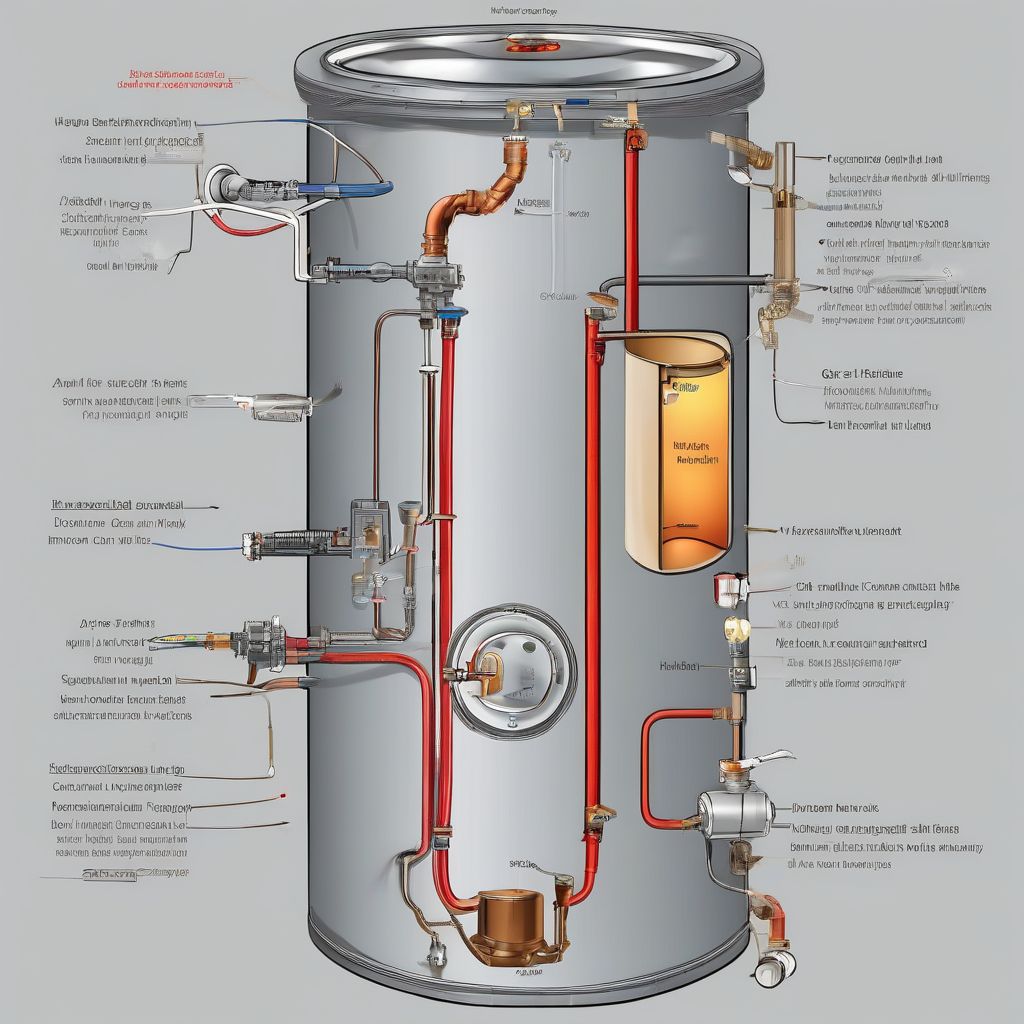Gas Water Heater Won’t Stay Lit: Troubleshooting the Issue
Imagine this: It’s a chilly morning, and you’re looking forward to a hot shower, only to discover that your gas water heater isn’t cooperating. The pilot light won’t stay lit, leaving you with cold water and a frustrating start to your day. A gas water heater that won’t stay lit is a common problem, often stemming from simple issues that can be diagnosed and addressed with a bit of troubleshooting.
This article delves into the intricacies of gas water heaters, exploring why they might not stay lit and providing actionable solutions to get your hot water flowing again.
Understanding Your Gas Water Heater: A Primer
Before diving into the troubleshooting process, it’s essential to grasp the basic workings of a gas water heater. These appliances utilize a complex interplay of gas, electricity, and water to provide hot water on demand. Here’s a simplified breakdown:
- Gas Supply: Natural gas or propane fuels the burner, generating heat.
- Thermocouple and Pilot Light: The pilot light is a small, continuous flame that ignites the main burner when the thermostat signals a demand for hot water. The thermocouple, a safety device, senses the heat from the pilot light and allows the gas valve to open, supplying gas to the burner.
- Burner Assembly: This component houses the main burner, responsible for heating the water within the tank.
- Flue: The flue acts as an exhaust system, safely venting combustion byproducts outside your home.
Common Culprits Behind a Gas Water Heater That Won’t Stay Lit
Several factors can cause your gas water heater’s pilot light to refuse to stay lit. Here are some of the most prevalent issues:
1. Thermocouple Malfunctions
The Problem: A faulty thermocouple is a frequent culprit when a gas water heater won’t stay lit. Over time, the thermocouple can become coated with dirt, debris, or even corrode, hindering its ability to sense heat from the pilot light accurately. If the thermocouple doesn’t detect sufficient heat, it will shut off the gas supply as a safety measure.
The Solution: Inspect the thermocouple for signs of dirt, debris, or corrosion. Gently clean it with a wire brush or fine sandpaper if necessary. If cleaning doesn’t resolve the issue, the thermocouple likely needs replacement.
2. Pilot Light Issues
The Problem: A weak, flickering, or completely extinguished pilot light can also prevent the burner from igniting. Drafts, dirt buildup around the pilot orifice, or a clogged pilot tube can all contribute to pilot light problems.
The Solution: Check for any obstructions blocking the pilot light or its orifice. Gently clean the area with a soft brush or compressed air. If the pilot light remains weak or goes out easily, the pilot orifice might be clogged and require cleaning with a small needle or wire.
3. Gas Supply Problems
The Problem: An insufficient or interrupted gas supply is another potential culprit. If the gas valve is partially closed or there’s an issue with the gas line, your water heater won’t receive the fuel it needs to operate.
The Solution: Ensure the gas valve leading to the water heater is fully open. Check other gas appliances in your home to determine if they are experiencing similar issues. If the problem persists or you suspect a gas leak (characterized by a rotten egg smell), immediately contact your gas company or a qualified plumber.
4. Faulty Gas Control Valve
The Problem: The gas control valve, responsible for regulating gas flow to the burner, can malfunction. This component is more complex and typically requires professional attention.
The Solution: If other troubleshooting steps fail to resolve the issue, the gas control valve might be the root cause. Contact a qualified plumber or heating technician to diagnose and repair or replace the gas control valve.
gas.areview.net/wp-content/uploads/2024/09/gas-water-heater-components-66dffe.jpg" alt="Gas Water Heater Components" width="1024" height="1024">Gas Water Heater Components
Additional Considerations and Safety Precautions
Addressing a gas water heater that won’t stay lit involves working with gas appliances, which requires caution. Here are some essential safety considerations:
- Ventilation: Ensure adequate ventilation around the water heater to prevent the buildup of hazardous gases.
- Carbon Monoxide Awareness: Carbon monoxide is an odorless, colorless, and potentially deadly gas produced during incomplete combustion. Install carbon monoxide detectors near your water heater and throughout your home.
- Professional Expertise: If you are uncomfortable troubleshooting gas appliances or if the problem persists, it’s crucial to seek help from a qualified plumber or heating technician.
Restoring Hot Water and Peace of Mind
A gas water heater that won’t stay lit can disrupt your daily routine. However, by understanding the common causes and following the troubleshooting steps outlined above, you can often identify and resolve the issue. Remember, safety is paramount when dealing with gas appliances. If you are unsure about any aspect of the troubleshooting process or if the problem persists, don’t hesitate to seek assistance from a qualified professional. By addressing the problem promptly and safely, you can restore hot water to your home and enjoy peace of mind.
